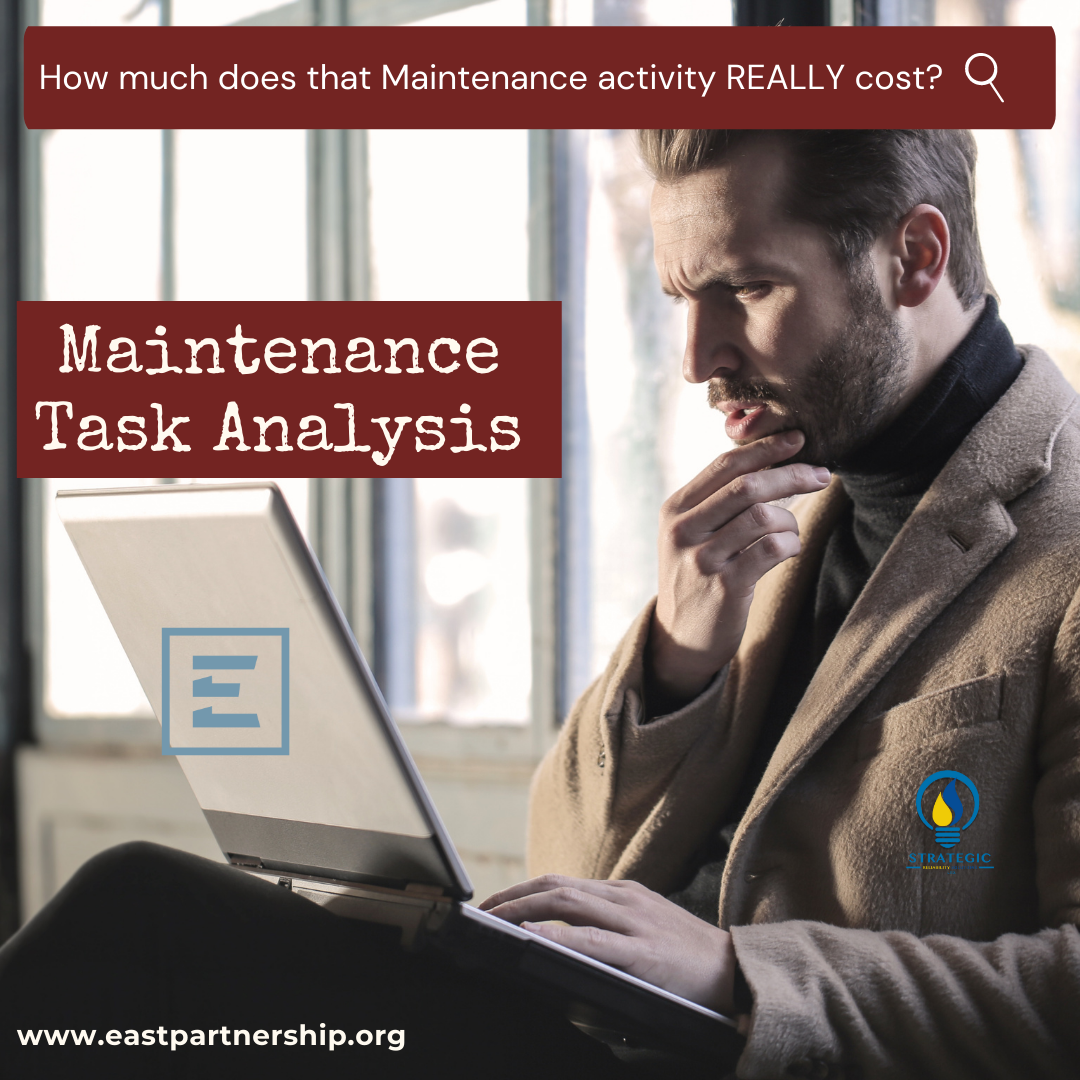MTA stands for Maintenance Task Analysis and it supports the development of Maintenance tasks / procedures and Supportability Analyses for life cycle Managers along with so much more!
Dr Lucas Marino, D.Eng., PMP, CMRP expertly guides us through the modules of:
- An Introduction to Maintenance Task Analysis
- Performing Maintenance Task Analysis &
- Utilizing MTA Results
This course is ideally suited for Technicians, Analysts and Managers form any industry! The ROI of standardized procedures, proper support planning (supply, training, personnel, etc), and knowledge of your equipment is imperative to successful maintainers and asset managers!
There are lots of bonus materials especially related to Sea Stories from East Partnership.
Here’s one of the powers of MTA! We can gather data that can be used for so many different applications! The data gathered can help us to:
- Define the steps that the team takes to complete the task – this is definitely helpful when curating specialty procedures adapted to your equipment
- Discover the parts, consumables, tools, special equipment and manpower needs – particularly useful if you log the cost associated with each. Armed with that info, you can easily get your Activity based costing
- Determine whether trade skills are required for particular tasks – comes in very handy when determining whether training is required or available
- Create outputs which can be used towards Maintenance Planning & Scheduling!
Check out the course today!
Ready to find out more?
Here are some questions that you may want to consider if you’re thinking about the MTA (Maintenance Task Analysis) Course.
- How much does that maintenance activity REALLY cost the organization?
- How many technicians and at what skill level are needed for those maintenance tasks?
- What parts, consumables, tech info, tools, special equipment are needed to complete the task?
- These are just some questions that pop up on a regular basis. How many of these questions are we leaving unanswered?
There is a ton to learn through MTA and it is organized, simplified, and repeatable if done properly.


